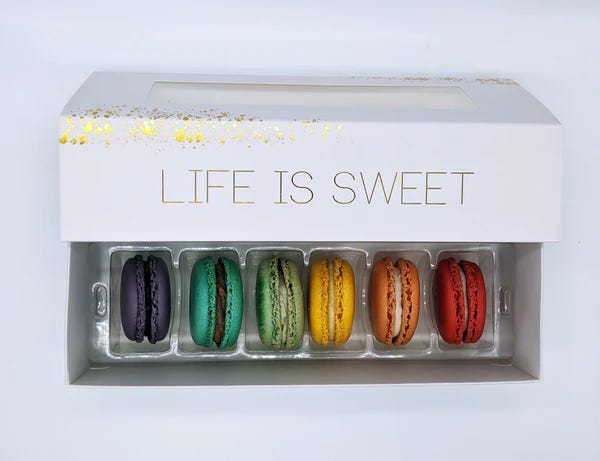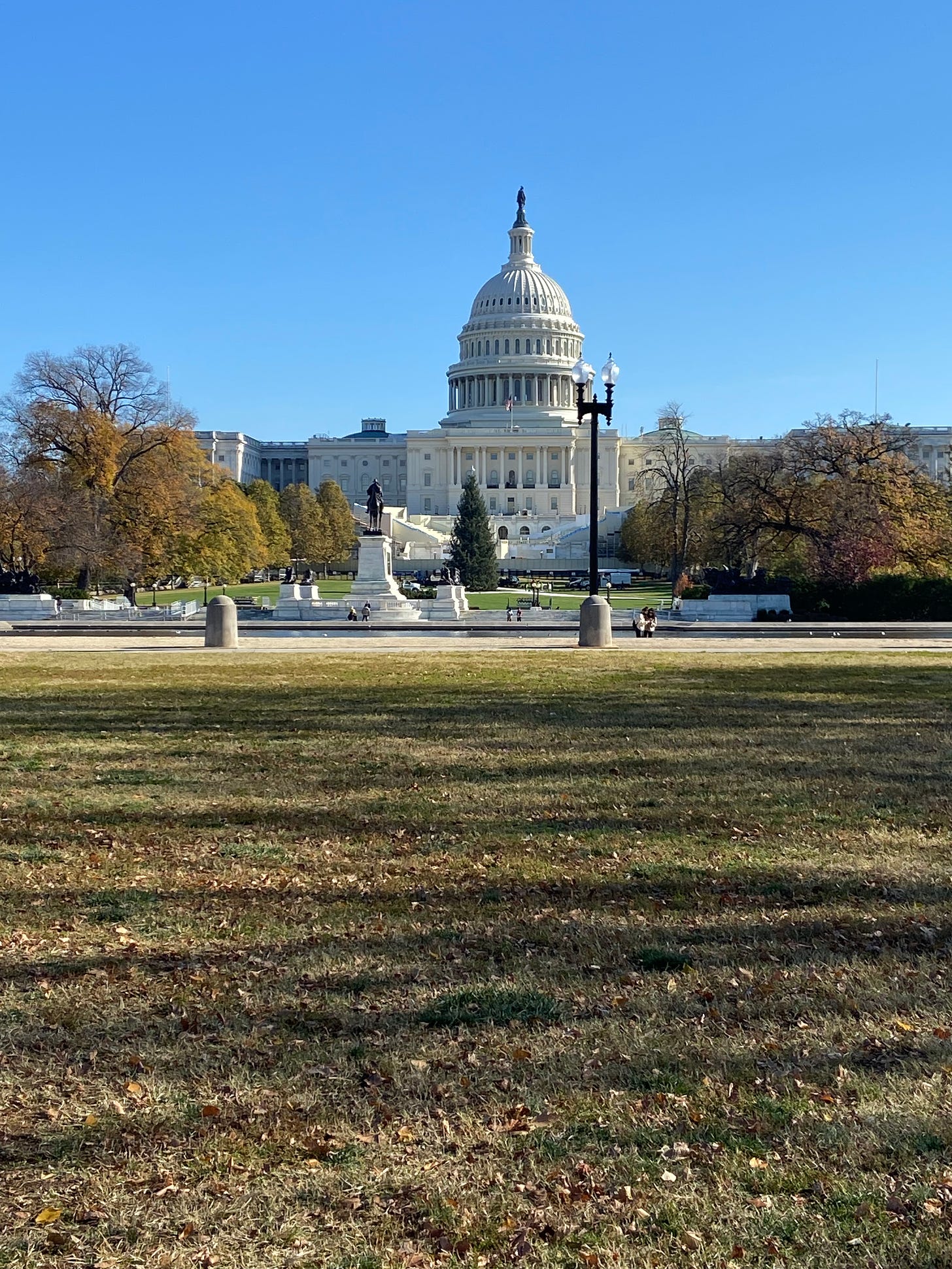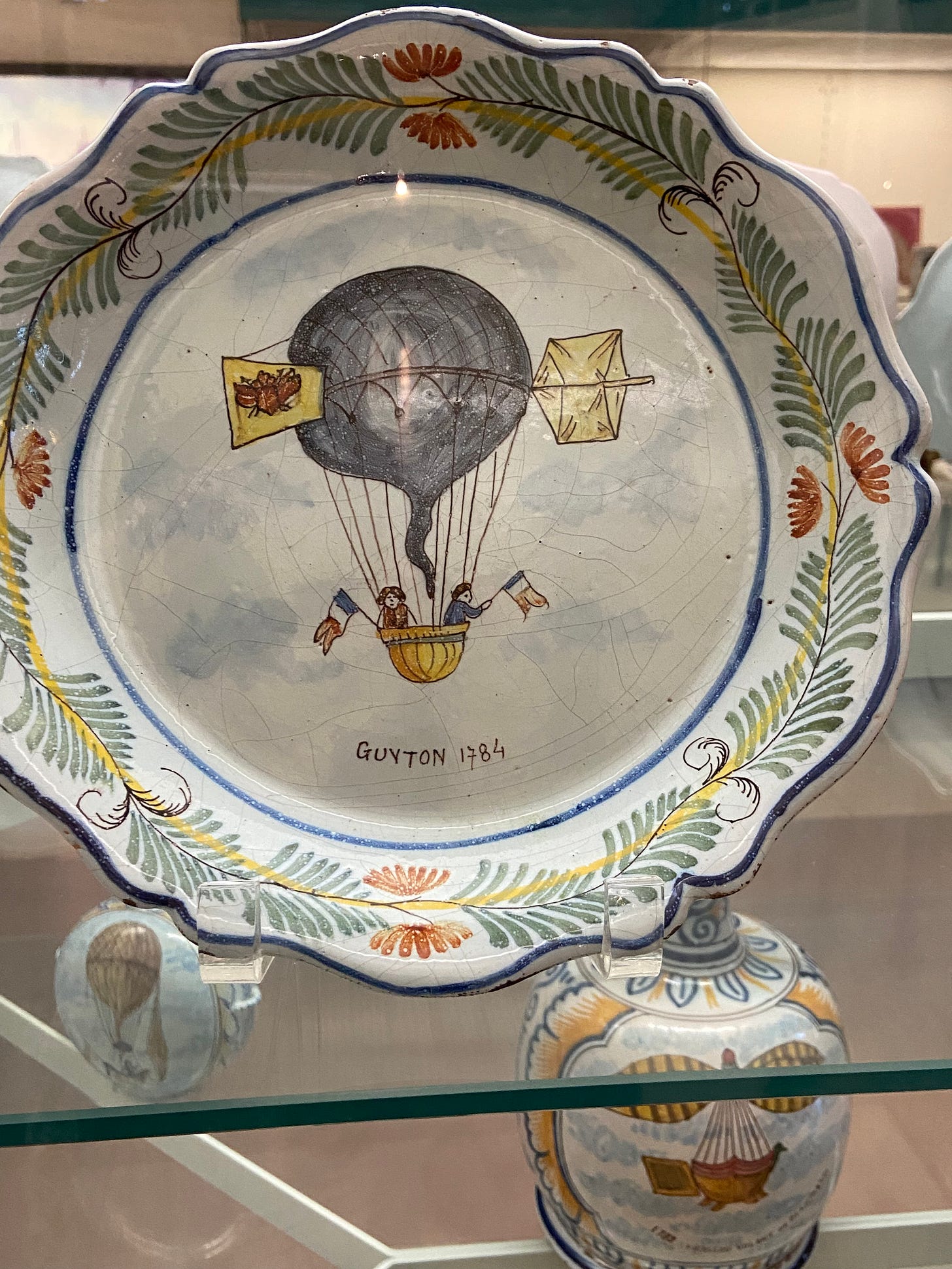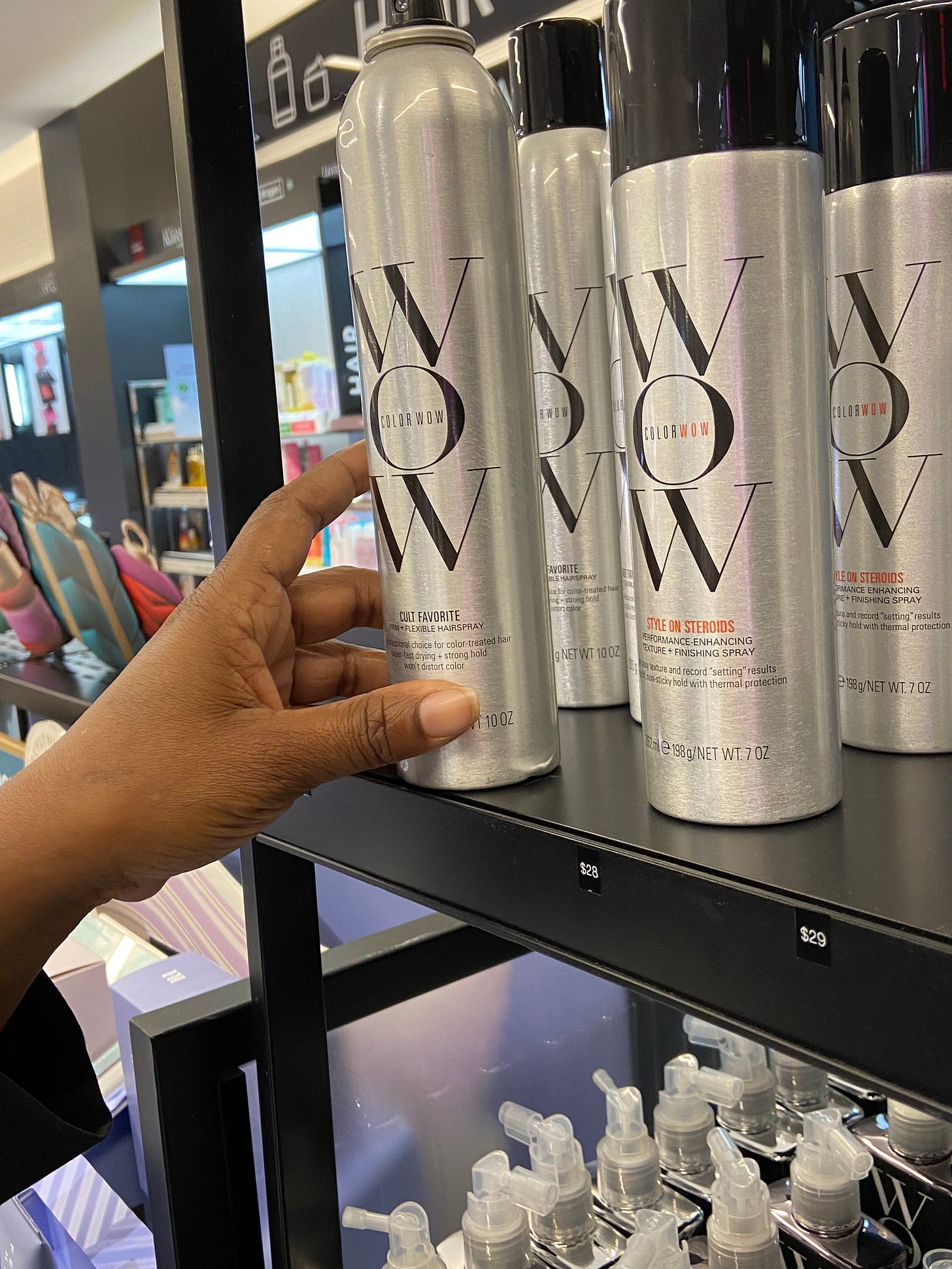Love among the Monuments
Kindness and reverence in America, with highlights from our capital vacation
Welcome to Quiet Reading, a refuge for our common humanity, inspired by authors, books, and this world of marvels. This past week, for the school break, I took my two teenagers to Washington, D.C. For me, the nation’s capital is a place of wonder and reverence — not only for the grand architecture and history, but for the wide boulevards and the clean, efficient Metro. This time, too, I was awed by simple human kindness. This week’s post has roasted extra long in the slow-cooker of my brain while I found a way to convey the afterglow of the week to you. There was more to it than fine weather and noble monuments.
The parts are: Breakfast, Dion, Antoinette, Nadia, Reverence, America.
I. Breakfast
It took us three mornings to find out how early we needed to rise to taste the roasted potatoes. Breakfast until 9:30 a.m. seemed fine on paper, but we learned the hard way that the food was not replenished for 9:15 arrivals. On Day 2, we hauled our western bodies down to the bustling dining room by 9:00 a.m. sharp, faring no better than Day 1 with a few watery eggs, one last chafing dish of sausages, almost a whole scoop of oatmeal scraped from a pot left open, and dry cereals from plastic dispensers.1
When I noticed the light peeking through the dark shades of our room on our last morning at the Holiday Inn Express, I sprang to action.
“8:25!” I announced to my progeny, sprawled in sweet slumber on the second bed and the sofa bed. “Breakfast!”
The sleepers moaned and tossed while I pulled on clothes. “See you downstairs,” I called from the door. “I’ll get a table.”
It was hard to move through the crowd in the breakfast room. Slow-moving adults blocked the coffee urns. What appeared to be a basketball team — athletic, sleep-rumpled youths over six feet tall wearing sweatpants and slip-on shoes — cruised the juice bar and sausages. The usual families lined up to wait for the “Ready in one minute!” machine to drop pale, three-inch pancakes on their nine-inch paper plates. My eyes scanned for the hot-dish line and — hopefully — potatoes.
A slight, grey-headed man wearing a black food service uniform stepped to the head of the pancake line, opened a chute, and poured a bucket of batter into the machine. Raising his voice above the clank of spoons and the low din of chatter, the man addressed the room generally,
Welcome to breakfast. Y’all are welcome here. There’s plenty for everyone. We’re honored to have you at our table. Fill your plates. Take all you need. We’re glad to have you.
He turned his attention to the head of the pancake line in particular.
There you go. Take two and let the next person have a turn. Everybody take two, and we’ll get you all through this line. Enjoy your breakfast. That’s right. Take two. Plenty for everyone.
The man in black wriggled through the pancake line, the juice line, and the line for breads and chafing dishes. Someone asked if he had yogurt and pointed to a small refrigerator with a glass front.
“No more today,” answered the man in black, holding up his hands in a gesture that looked all too familiar.
I noticed something in the refrigerator I had not seen yet during our stay: green paper cartons labeled MILK. I snatched one when the hot-dish line snaked past. Minutes later, feeling triumphant, I scooped roasted potatoes onto my plate, plus strips of bacon and a slippery cheese omelette.
By the time the kids arrived, I had found us a table, wiped it with a moistened napkin, and tasted the prize. “Mmm!” I told the kids. “It’s worth it to get up for the potatoes. They’re amazing.” Hands down, the crispy-soft, spiced potatoes won the blue ribbon among the breakfast offerings.
The cook, I decided, was a diamond on K Street.
While I sat in reverence, the man in black stepped to the center of the packed dining room and called for attention. “Good morning, everyone. My name is Dion,” he began. He waited for the chatter to stop, a pillar of self-respect and confidence.
His silence drew our attention better than any harangue.
II. Dion
“Good morning,” he said again when the room fell quiet.
I want to welcome every single one of you personally to this breakfast. I hope you all find plenty to eat. My name is Dion. Let me know if you need anything.
My mother is 86 years old. Every day, she asks herself, What can I do to make this world better for someone today?
We’re all family here, every one of us, brothers and sisters. Every one.
I want you to do me a favor. When you leave here, I want you to ask what you can do to make this world better for someone today. Let’s all do it. If everybody does it — just think about that.2
I wanted to applaud.
It was just words, you might say. Words from a man in a black food-service uniform who divided the loaves and fishes so that we would feel bounty even when provisions ran low.
And then I did applaud, along with the others.
We set down our plastic utensils and clapped for the slender man with grey hair and penetrating eyes, his complexion just a shade lighter than his uniform, while he looked over our heads and saw a woman in an elegant sari tapping the hot water dispenser in vain.
Dion moved to fill it.
III. Antoinette
We arrived gratefully at the Holiday Inn Express on Sunday evening after crossing the country, riding the silver train into town from the airport, and wheeling our luggage through Chinatown to K Street. The evening was mild and lovely.
The high, green logo of our hotel led us like a beacon for the last blocks.
The lobby looked spacious and comfortable, but the front desk itself was small and spartan. I felt the “Express” in the hotel name, and kept my expectations low. I hoped there would be no problem with my top three requirements — the reasons I had chosen this hotel: three beds in the room, walking distance to everything we wanted to see, and breakfast. That would be plenty.
“Hi there. How y’all doing this evening?” a warm voice greeted us, as though we were guests entering her home.
She looked to be in her thirties, commanding the entry and at ease. The halo of black hair framing her face was soft and enormous, drawing all eyes from the simple furnishings to her good-humored expression.
She checked us in faster than you can say George Washington. She gestured toward shelves of candy and incidentals. “We have snacks if you need them, but you can get them for less anywhere else.” Her name was Antoinette.3 A manager covering the front desk, she had the authority to bring her whole warm personality to the job.
I looked back when the elevator doors opened, and Antoinette had moved to another task.
She was there again in the morning when we stepped out into the sunlight. Also there that evening and the next morning. I fancied her the lead actor in a play, her charisma presiding over virtually every scene.
I wondered when Antoinette slept.
IV. Nadia
By prior arrangement, each of the three of us had chosen something we wanted to do in “D.C.” My son wanted to see the Smithsonian and the National Mall. My daughter wanted to go shopping. And I had chosen a hotel within walking distance of Ford’s Theater so that we would at least see the place; going to see A Christmas Carol there was optional.4
On Monday we had timed-admission tickets to the Air & Space Museum, so we spent our first day walking up and down the Mall.
By Tuesday, my daughter was exhausted with museums. She rattled off her shopping list while I scanned Google Maps for the most promising stores.
On our way to the shops around Gallery Place, we passed through the white tents of a Christmas market. The white columns of the National Portrait Gallery provided a sturdy backdrop to the flimsy tents as a cold November wind blew through the place.
We stopped before a tent with cat toys and feline treats. In a glass case at the front of the booth, the vendor was setting up rows and rows of colorful human treats. The owner, I suspect, of the Macaron Parlour, down from Manhattan,5 stood in front of the glass case giving instructions to the vendor on the other side so the colorful cookies would be displayed just right.
The kids and I came up behind, browsing the flavors: lemon, raspberry, pistachio, fig…. Prices were displayed clearly, so I knew what I was in for. Three dollars each for a cookie we would eat in two bites.
I like to support businesses with transparent pricing. I was in the mood for a sweet.
We each chose two flavors, lemon and fig for me. The saleswoman (“This is my first day and you’re my first customer!”) placed them in a custom tray and a decorative white box. We put them in our bag to savor with intention later, somewhere out of the wind.

Not much farther, on the block across the street from Ford’s Theater, a spacious Sephora sign beckoned. My sixteen-year-old son understood his responsibility. The day before, his sister had dragged herself from room to room at Air & Space and American History, and schlepped all the way from Capitol Hill to the Lincoln Memorial. He could stand patiently in a cosmetics store for as many hours as it took.
I asked a saleswoman for help.
She smiled and treated us like we knew the difference between face cream and moisturizer. Maybe my daughter had learned these things from You Tube. I gave up make-up years ago. Too much trouble. Whatever they were calling the products nowadays, I was the last person to initiate a teenager.
I let Nadia know this and put our fate entirely in her hands. I liked the way she treated herself and us. I felt I could trust her.
She plucked a few products from a display and led us to a table with a mirror.
Nadia rubbed products on my daughter’s wrist and showed her how to apply them to her face. Her verbs enchanted me: Blend, shadow, smooth, circle. Nadia’s hands demonstrated a different motion for every unguent.
I tried to follow the nouns, but mostly blundered them. “So you recommend both the face cream and the eye cream?” I repeated, pointing at small vials carrying 0.5 or .83 ounces of liquids indistinguishable to me.
I told Nadia these were good sizes. We were travelers and had to get through TSA.
Though she knew and I knew that would limit what we could buy from her, she continued to treat us like royalty, beautifying and coaching and distinguishing between types of heat protectant for the hair.
“Do you use a flat iron?” she asked my daughter.
That meant pancakes instead of waffles, right?
“No,” said the teen, while her mother wondered if that’s what they called a standard curling iron these days.
My son shifted his weight from hip to hip, and I hung on Nadia’s every word. All these products made a poem, and she knew which word to use where.
Like poetry, she dignified us all. She praised my son for his long patience. She praised me whenever she caught me knowing something I said I didn’t know. (“See! You know more than you let on” — and then her merry, sisterly laugh.) And she treated my thirteen-year-old like an experienced, discriminating woman of the world. Without talking down to her at all, she looked at me when pointing out the difference between a high-dollar product, well displayed, and a smaller product on the back of the display, better for first-time purchasers at $11.
I knew when I saw her that she was our Virgil in this mercantile, feminine Inferno.
V. Reverence
Of course, two-and-a-half days were not enough to see the monuments and marble domes that make Washington, D.C., unique among cities, but we made good use of our brief time. We walked the wide, clean avenues under colorful deciduous canopies. We climbed steps worn concave by tides of visitors. We took pictures.

My sixteen-year-old was impressed beyond his expectations. Here was the actual plane built and flown by the Wright brothers, the actual bird released in some sort of World War I errand that he knew and I did not, sort of like his sister with face creams.6 He and I were awed to stand in the actual room where Abraham Lincoln died. If my daughter felt any wonder about these things, it did not anchor her long in any one place.
As the day wore on, and golden light fell on the mall, she snapped photos quickly and tugged my sleeve. “Come on, Mom!” she prodded when I lingered to watch the light.

It occurred to me that we were a lot like America.
There was plenty of reverence in our little trio, though not for the same objects at the same time. You have to get to know a person to learn what they care about. Because they are my children and I love them, it did not feel wrong to me that my son had his loves, my daughter hers.
Long may we citizens think like parents, not partisans, and all of us have the freedom to love what we love. Monuments or makeup. Fine.
VI. America
The educational innovator John Dewey believed public education had a role in forging the “common spirit” needed in a democracy, and I agree with him. Advocating a practical, hands-on education where learners work together to solve real problems, he wrote more than a century ago,
A society is a number of people held together because they are working along common lines, in a common spirit, and with reference to common aims. The common needs and aims demand a growing interchange of thought and growing unity of sympathetic feeling.7
Beyond my expectations, I felt cared for on our vacation by people who did not necessarily know each other, but who were motivated by a “common spirit” of customer service — sure, that’s good business — and something more. Call it kindness, decency, humanity.
The people I met and admired on our short trip did not come to Washington, D.C., for a federal job. They belong to the “diverse group” of “locals” that
() mentioned briefly in an essay about the D.C. character (“Washington DC Is Not a Popularity Contest”). These are people whose “slice of Washington life is not centered on the city’s central industry [the federal government]. [They] could be doing the same jobs just about anywhere. If Wall Street and Capitol Hill traded places tomorrow their livelihoods would change little.”And yet — Is it something in the hospitality industry training in D.C.? Is it something in the air of political wrangling and rancor that moves people to push kindness with greater vigor? Or something in the beauty of the monuments that lifts the chin and squares the shoulders — for those susceptible to such things? Maybe I was just lucky?
Americans have a common problem to solve, which means, in Deweyan terms, we have a chance to come together as a community to solve it. According to Roget’s 21st Century Thesaurus, the antonyms of reverence include:
Dishonor, disregard, disrespect, hate.
Censure, condemnation, criticism, dislike, hatred.
Disdain, scorn.
Do those words sound like public discourse in any city or country you know?
What if our problem is a vortex of antonyms where reverence belongs? Reverence for people, places, and things. Reverence for monuments, strangers, and — yes — eye creams, to be applied carefully, lovingly, just so, to that face in the mirror, so worthy of love.
Some will say all reverence springs from One Divine Source. But you don’t need to consider yourself either spiritual or religious to step out under the golden autumn canopy — or maybe into the crunch of frost or the fragrance of spring, wherever you are — and find something worthy of deep admiration and praise.
If a common spirit and common aim of lifting up others as ourselves were spreading across the land, how long would it pass quietly from eye to eye before the news reporters got hold of it as a story? Months? Years? Decades?
After meeting Antoinette, Dion, and Nadia, I wonder: Might it be happening now?

I mean no insult to the cook. Eggs in chafing dishes come in one of two varieties: dry or watery. Between the two options, watery eggs seem to be preferred by most people. Considering the price, location, service, and comfort of our hotel — so quiet that I had no idea how full were the rooms until I saw my neighbors at breakfast — the provisions were abundant beyond expectation and also tasty.
Unfortunately, I have had to reconstruct Dion’s speech from remembered phrases only. The original was much better, but I think my pale imitation will give you an idea of how his eloquence surprised us, this Henry Clay of the breakfast room.
I remembered it as Antonia. My son remembered her name as Antoinette. I trust his memory more than mine. I think he’s right.
We did not see A Christmas Carol - and that was fine, given our limited time and many things to do. We did walk through the boarding house across from Ford’s Theater where Lincoln died. (After all, it was sooo close to Sephora.) I browsed Substack to see if anyone had written a review of the show we missed on our visit, and to my surprise I found this review instead by
of a version of Dickens’ classic on stage now in Cardiff, Wales, in which Scrooge is a woman. Had we been to Cardiff, here is a show I’d not have missed.I’m feeling a little envious right now of
, , my sis in Brooklyn, and others of you who can get your hands on some Macaron Parlour confections any time they’re open. Maybe I need to get out more and find macaron-makers here in my own town, but I do feel that fig-honey flavor was something special.I’m really glad I ran this draft by my son. I had this bird serving in World War II, but Cher Ami served with honor in World War I. His story is here, if you care for quirky history.
John Dewey, The School and Society (1899), University of Chicago Press, 1915 edition, Internet Archive, p. 11.
Subscribe to Quiet Reading with Tara Penry
A weekly refuge for our shared humanity inspired by authors, books, and this world of marvels.


















Beautiful writing! Thank you for sharing these gems; both the stories and the humans. I love thinking about the ripple effects of small acts of kindness. I love how you highlighted moments of care and connection against a backdrop of monuments. The little things, done with love and reverence, truly are the big things.
Here’s to reverence and those who embody it. Many work in low-paid service jobs across America, and we have met them on road trips through places you’d only choose to visit while getting from here to there. They are unfailingly kind, take pride in their work, and start (or conclude) our day with a smile. It’s good to see them honored in this thought-provoking essay.